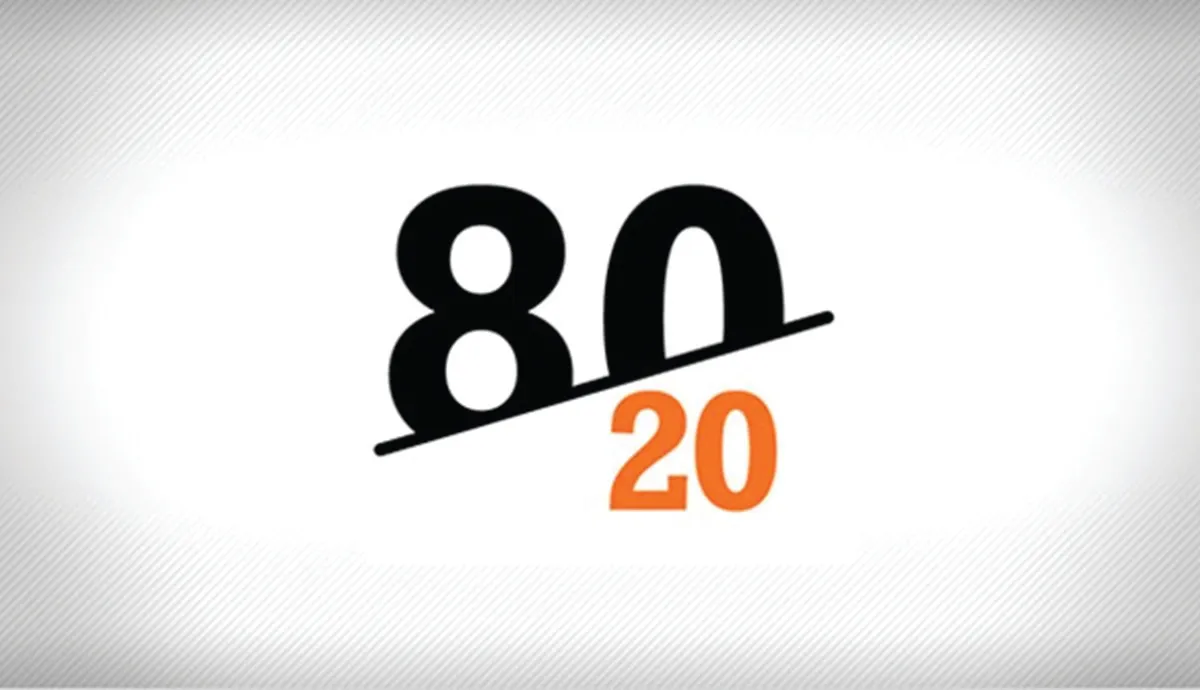Table of Contents
Vilfredo Pareto was the son of an exiled aristocratic Italian father, forced to leave Italy because of his liberal politics, and a French mother. He became the lead professor of economics at the University of Lausanne, France, in 1893. Pareto was a brilliant mathematician who designed railroads, and studied and taught mathematics and sociology.
For us his most important “discovery” was the 80/20 rule or the “Pareto Principle,” which states that 20% of anything we do will bring us 80% of our results.
I have done an 80/20 breakdown on hundreds of individual salespeople’s account boxes and at least 50 different sales teams. Most sellers are making 80% of their income from fewer than five accounts. Twenty percent of any sales team will be bringing in 80% of the business. (This also holds true for both NBA and NHL teams—20% of the players will score 80% of the points.)
Three things will affect our success. We apply Pareto’s Principle to all three. If we don’t we will be part of the bottom 80% fighting over 20% of the pie.
Work Ethic
The majority of sellers that fail, simply do not work hard enough. In addition, the sellers who break out of the pack sooner are the ones who work WAY harder than their contemporaries. These sellers treat their account box as if it were their own business—which it is! These sellers are putting in a solid 48-55 week, but even those who don’t put in those hours, work while they are at work! Intensity matters. Many sellers are “at their desk” but not working. Others still are making the calls but are not making “sales” calls because they don’t do “sales” work. They present product and let the customer decide, which is not sales but a poor, unprofitable imitation of Google or Amazon.
On any sales team there will be a genius who makes it look easy. On that same floor is a genius who works like a sales machine. The second salesperson is our role model.
Salesmanship
Many sellers have what I call the “Popeye Syndrome”— that is, “I y’am what I y’am and that’s all that I y’am.”
These sellers continue to communicate the way the always have, actively or unknowingly refusing to understand that “sales” has a special language of its own. Those who learn and apply it—the top 20%—will prosper; those who don’t will founder.
Sales is a learnable skill. Are there “natural born” salespeople? Yes, about one in 60 is my estimation. The rest of us have to learn it.
This is also true if you are only “out-working the competition.” Some of us can overcome our lack of sales ability by out-working most others, but at some point, I tell these sellers, “You’re already making 80 a day. You can’t make 160 and make more money; you’re going to have to work on your sales skills.”
Account Management
You work hard enough. Your sales skills are at a high level. But you are stagnated. The only answer left to increase your sales is to upgrade your account box. This is where the Pareto Principle does its magic. Exercise:
- Make three columns in an spreadsheet.
- The column on the left is the name of the account.
- The column in the middle is the amount of sales/profit we made with that account over the last twelve months.
- Once we have those numbers plugged in, sort top to bottom.
- In the third column on the right run the accumulated profit going down the list from top to bottom. (We can automate this by using the formula in Excel (C1 = A1+B1 and so on down the column.)
- Once we have our total and sorts done, draw a line under the accounts that represent 80% of your profit/sales.
The accounts above the line are making us money, the accounts below the line are not. Period. Any account we work for more than six months that is below the line, must go. The accounts above the line are 16 times more valuable than those below.
We use Pareto’s Principle to find the leak in our sales boat. It gives us a clear, mathematical view of what to work on in our business.









